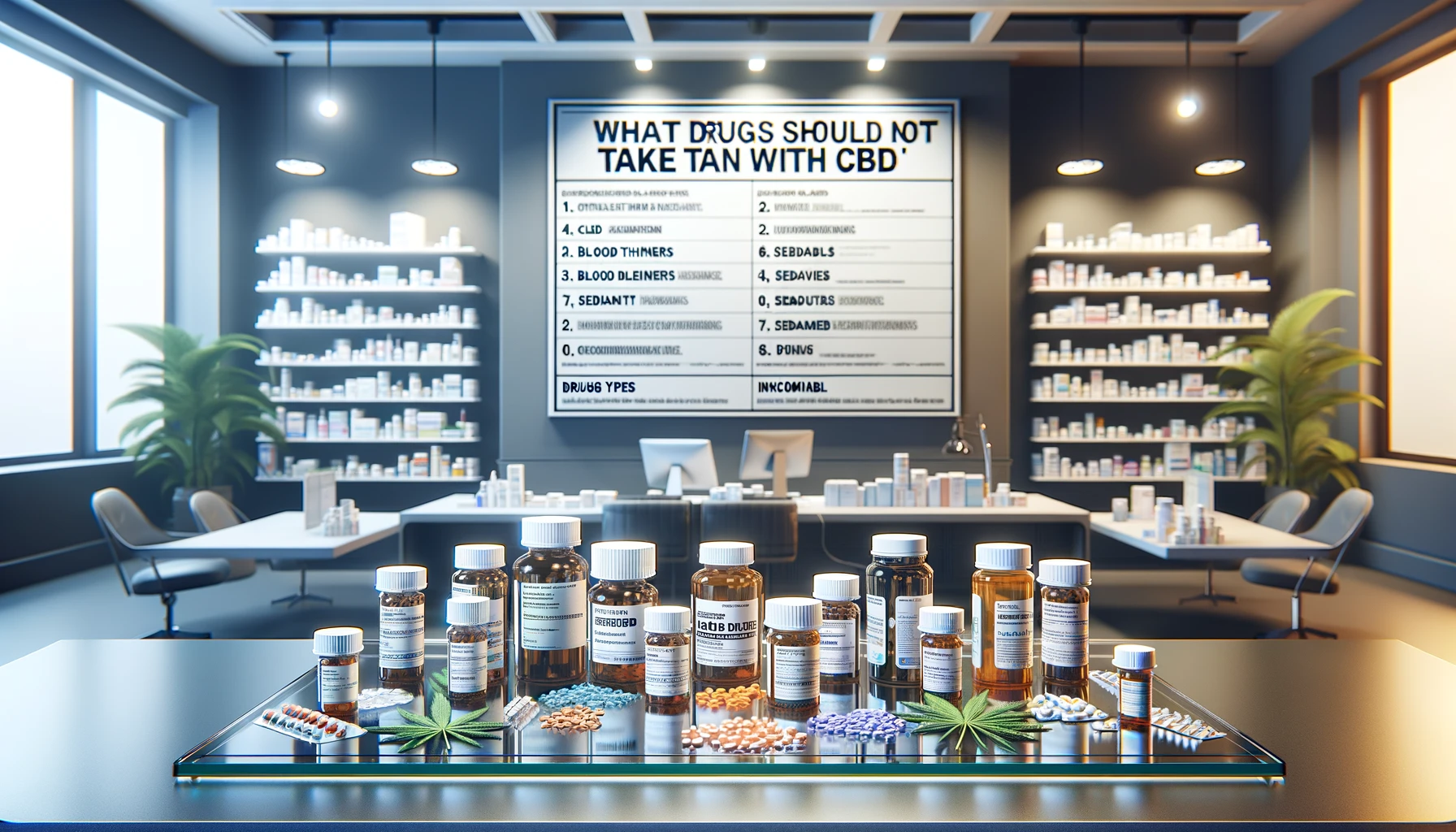Introduction to CBD and Drug Interactions
Cannabidiol (CBD), a compound found in cannabis plants, has gained significant attention for its potential health benefits, particularly in managing pain, anxiety, and sleep disorders. Unlike its counterpart, THC, CBD is not psychoactive and is often praised for its therapeutic properties without the ‘high’ associated with marijuana.
As CBD becomes more prevalent, understanding its interaction with other medications is crucial. The human body metabolizes drugs in various ways, primarily through enzymes in the liver. CBD can influence these enzymes, affecting how other drugs are processed. This interaction can potentially alter the effectiveness of medications or lead to unexpected side effects.
The Science Behind CBD Interactions
CBD’s interactions with other drugs primarily involve the Cytochrome P450 enzyme system in the liver. This system, composed of liver enzymes, metabolizes many medications. CBD can inhibit the activity of these enzymes, slowing down the metabolism of certain drugs, leading to higher levels of the drug in the body and potentially increasing the risk of side effects.
For example, if CBD is taken with a medication that relies on P450 for its breakdown, the drug may not metabolize as expected. This can be particularly concerning with medications that have a narrow therapeutic index, where the difference between a beneficial dose and a toxic one is small.
Specific Drug Categories and CBD
- Blood Thinners and CBD: Medications like warfarin, used as blood thinners, can be affected by CBD. CBD may enhance the effect of these drugs, increasing the risk of bleeding. Regular monitoring of blood clotting times is recommended for patients using both.
- Anti-Seizure Medications and CBD: CBD may interact with seizure medications like clobazam, altering their effectiveness. This can lead to either decreased seizure control or increased side effects.
- Antidepressants and CBD: The interaction between CBD and antidepressants like SSRIs is not fully understood. While some studies suggest potential benefits, others warn of increased side effects. Close monitoring by a healthcare provider is advised.
- Pain Medications and CBD: Opioids and nonsteroidal anti-inflammatory drugs (NSAIDs) may have altered effectiveness when taken with CBD. This could lead to increased pain relief or, conversely, greater risks of side effects.
- Other Common Medications: CBD can interact with a wide range of common medications, including certain antibiotics, heart rhythm medications, and immune suppressants. Patients should always consult with their healthcare provider before combining CBD with other medications.
Case Studies and Clinical Evidence
While research is ongoing, there have been some notable studies and case reports. For example, a study on epilepsy patients taking clobazam showed that CBD increased the medication’s concentration, requiring dose adjustments. These findings highlight the importance of monitoring and adjusting medications when adding CBD to a treatment regimen.
Understanding the Risks and Precautions
The potential risks of combining CBD with certain drugs include increased side effects, reduced effectiveness of medications, and unexpected reactions. To minimize these risks, patients should start with a low dose of CBD and only increase it under medical supervision. Regular blood tests may be necessary to monitor the levels of certain medications in the blood.
Guidance for Safe CBD Use
Consulting healthcare professionals is vital for anyone considering CBD, especially those on other medications. Healthcare providers can offer guidance based on the latest research and clinical experience.
Regulatory Perspectives and Legal Considerations
The legal status of CBD varies by region and is often in a state of flux. In some areas, CBD is fully legal, while in others, it’s available only for medical use or completely prohibited. This legal variability can impact how CBD is prescribed and used in conjunction with other medications.
Patient Experiences and Real-Life Scenarios
Anecdotal evidence and patient stories play a significant role in understanding CBD’s real-world effects. For instance, some patients report improved well-being when using CBD in conjunction with their regular medications, while others have experienced adverse interactions.
Future Research and Development
Research into CBD and drug interactions is an evolving field. Future studies are expected to provide deeper insights into how CBD interacts with specific medications, leading to safer and more effective use of this compound.
FAQs: CBD and Drug Interactions
Q: Can CBD replace my current medication?
A: CBD should not be used as a replacement for prescribed medications without consulting a healthcare provider.
Q: How do I know if CBD is interacting with my medication?
A: Signs of interaction include increased side effects or changes in the effectiveness of your medication. Regular monitoring and consultation with a healthcare professional are essential.
Q: Can I take CBD with over-the-counter medications?
A: While many over-the-counter medications may be safe to use with CBD, it’s still important to consult a healthcare provider, as interactions can occur.
Conclusion
CBD’s potential health benefits are promising, but its interactions with other drugs necessitate caution and informed decision-making. Consulting healthcare professionals and staying informed about the latest research is key to safely incorporating CBD into a treatment plan.

Meet the CBDOilWow Editorial Team, a collective of CBD experts dedicated to unraveling the world of cannabidiol. With a passion for wellness and a commitment to providing the latest insights, they serve as your trusted guides in exploring the potential of CBD, ensuring you make informed choices for a healthier, more balanced life.

Leave a Reply